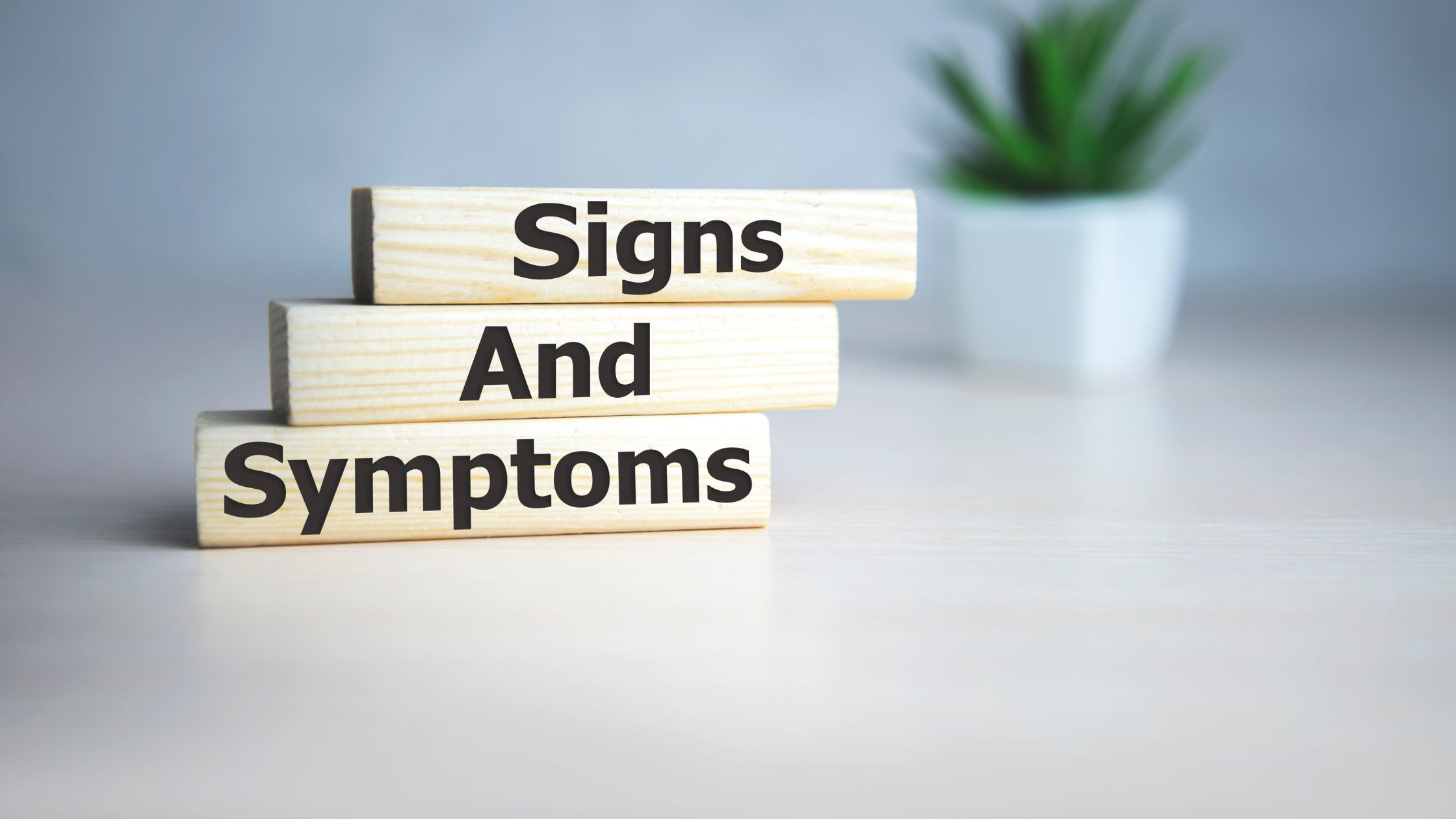Embarking on a fertility journey can be both exciting and nerve-wracking. If you’ve been trying to conceive, you’re probably aware of the fertile window, ovulation, and pregnancy test timing. The magic begins after a fertilized egg implants into the uterine lining, marking the start of a pregnancy.
But here’s the tricky part: Not everyone starts showing signs of pregnancy immediately. Some might notice signs as early as 6 DPO (days past ovulation), while others might start feeling different around 8 DPO or later. By 11 DPO, technically the third week of your pregnancy, you might be on high alert, analyzing every little change in your body, from twinges to cramps, wondering if you’re pregnant.
As you navigate this phase, it’s beneficial to familiarize yourself with common early pregnancy signs that might pop up sooner than you think. By understanding these common pregnancy symptoms and what’s happening in your body at 11 DPO, you’ll be better equipped to spot potential indicators of pregnancy.
What is 11 DPO?
When trying to conceive, timing is crucial, especially when considering the days past ovulation. Specifically, 11 DPO marks 11 days after ovulation, a pivotal time when your body increases the production of essential pregnancy hormones like human chorionic gonadotropin (hCG), estrogen, and progesterone. These hormones are responsible for the early signs and symptoms of pregnancy. While some pregnancy symptoms might appear as early as 6 to 10 DPO, 11 days post ovulation might still be too soon to get a definitive positive pregnancy result.
What Is Happening in Your Body at 11 DPO?

So, you’re trying to get pregnant, and timing is everything. But it’s not just about the right moment; it’s also about what happens later. The days following ovulation, especially around 11 DPO, are crucial. Why? Because that’s when your body amps up the production of pregnancy hormones like hCG, estrogen, and progesterone.
During ovulation, your ovary releases a mature egg, which takes a trip down the fallopian tube and into the uterus. If there’s a sperm nearby, they’ll have a quick meetup, known as fertilization, leading to pregnancy within 24 hours of ovulation.
This fertilized egg, now called a zygote, continues its journey to the uterus. As it travels, it splits and grows, eventually forming a blastocyst. Between 8 to 10 DPO, this zygote settles into the uterine lining in a process called implantation. But if you’re past 10 DPO and haven’t felt anything, don’t worry. Some studies suggest implantation can take up to 12 days.
Your early placenta starts producing the hCG pregnancy hormone around 5-6 weeks gestation. This is the same hormone that pregnancy tests detect. It’s the placenta’s way of gearing up to support your growing baby.
So, if those levels are rising, there’s a good chance you’re expecting! However, the initial levels might need to be higher for a test to spot. With increased pregnancy hormones around 11 days past ovulation, you might start feeling some early signs of pregnancy.
Early Pregnancy Symptoms at 11 DPO

At 11 days post ovulation, some signs might hint you’re expecting. While these symptoms aren’t a surefire “you’re pregnant!” announcement, they’re worth keeping on your radar. Potential pregnancy symptoms at 11 DPO include:
1. Cramps
Cramping during early pregnancy is pretty common. Pregnancy hormones can play tricks on your gut health, leading to changes in digestion. This can make you feel bloated and gassy and give you cramps.
Around 9 to 12 DPO, you might feel some cramping due to implantation. Some women say it feels like menstrual period cramps but a bit milder. And to throw a curveball, this mild cramping can sometimes come with light bleeding (also known as implantation bleeding), making it easy to mistake for your period.
Remember, if you’re cramping and spotting or bleeding heavily, it could be a sign of a miscarriage. But don’t jump to conclusions; it’s always best to check with your doctor.
2. Nausea
Morning sickness or nausea is one of the early 11 DPO symptoms. Despite its name, it doesn’t just strike in the morning. It can hit you any time of day.
For most women, this queasy feeling is a dead giveaway that they’re expecting. And while morning sickness is most common in the first trimester, some women might feel it throughout their pregnancy.
What triggers this nausea? If certain smells and odors can set off morning sickness, it could indicate that you might be pregnant.
3. Spotting
Implantation can cause some tiny blood vessels to burst, leading to spotting or implantation bleeding. It often happens when you expect your menstrual cycle, so it’s easy to mistake one for the other, especially if cramping is involved. But unlike your regular period, implantation bleeding is typically much lighter and can be so faint that you might even miss it.
Only some women will experience it, and for those who do, the amount can vary. It usually pops up between 6 and 10 DPO and can linger on for a few days.
4. Breast Tenderness
One of the first signs many women notice during early pregnancy is a change in their breasts. Thanks to those surging hormone levels, your breasts might feel swollen, sore, and more sensitive than usual. This tenderness is a combination of increased blood flow and fluid retention. Don’t be surprised if they feel heavier and look bigger, too. Your nipples can become more sensitive and sore as well. Plus, the area around the areolas might darken a bit.
5. Frequent Urination
If you find yourself making frequent trips to the loo, even if you haven’t been guzzling water, it could be a hint that you’re expecting. This sudden urge to pee more often is due to the increased blood flow to your kidneys after conception. In fact, your kidneys kick into high gear and can produce up to 25 percent more urine shortly after you conceive. This uptick usually peaks towards the end of the first trimester.
This frequent urination isn’t just about your kidneys working overtime. As your baby grows and your uterus expands, it puts pressure on your bladder. So, even if you feel like you’ve just been, your growing womb might make you feel like you need to go again.
But there’s a silver lining! The need to pee all the time usually eases up by the end of the first trimester. But as you approach the third trimester and your belly grows, you might find yourself back in the bathroom more often.
6. Fatigue and Headaches
You might grapple with headaches if you’re in the early stages of pregnancy, especially around 11 days past ovulation. The usual suspects behind these headaches are surging hormone levels and increased blood volume. Factors like low blood sugar, dehydration, and even cutting back on caffeine can also play a role. And let’s not forget stress and severe fatigue, both early signs of pregnancy and can amplify those headaches.
7. Digestive Issues
At 11 DPO, various digestive problems can arise, including bloating, gas, and constipation.
8. Elevated Basal Body Temperature
Your basal body temperature (BBT) might be slightly raised. If you become pregnant, this increased basal body temperature may persist. However, if not, it will return to the baseline before your next period.
Can You Take a Pregnancy Test at 11 DPO?
Patience is key if you’re eager to find out if you’re pregnant. While taking a test as soon as possible is tempting, waiting until at least 12 DPO gives you a better shot at getting an accurate positive result. This is because home pregnancy tests work by measuring the hCG hormone in your urine, which increases as your pregnancy progresses. Some super-sensitive tests can detect levels as low as 6.3 mIU/mL.
Now, if you’ve taken a test 11 days past ovulation and it’s negative, don’t lose hope. It might be early for the test to pick up on those rising pregnancy hormone hCG levels. But if you’re already experiencing early pregnancy symptoms, there’s a higher chance you’ll see a positive result.
For the best shot at accuracy, take the test first thing in the morning when your hCG levels are most concentrated in your urine. And if you’re looking for added certainty, consider taking the test on the first day of your missed period.
11 DPO and Positive Pregnancy Test (BFP)

Suppose you’ve taken a pregnancy test at 11 DPO and got a BFP (Big Fat Positive). In that case, there’s a strong likelihood you’re pregnant, especially considering that most home pregnancy tests boast an impressive accuracy rate of about 99% when used correctly. The experts at Cleveland Clinic back this up, emphasizing the importance of precisely following the manufacturer’s instructions.
While it might be early to test positive and experience pregnancy symptoms, testing positive at this stage is not unheard of. Remember, while a positive test is a promising sign, the hCG hormone may not have reached detectable levels yet. In rare instances, a test might show positive due to high hCG levels, but the pregnancy could end in an early miscarriage.
11 DPO and Negative Pregnancy Test (BFN)

If you take a pregnancy test at 11 DPO and it is a BFN (Big Fat Negative), don’t jump to conclusions just yet! It’s still early days, and your body might not have hit the hCG levels detectable by home tests. It’s also possible that the test wasn’t done right. Or, it could mean you might not be pregnant.
But chin up! It’s a good idea to test again in a day or two. Waiting until your expected period date is advisable if the result is still negative. Some women prefer to wait and see if they miss their period before taking another test.
How Many DPO Is Late For Implantation?
As highlighted in a study, implantation typically takes place between 8 to 10 DPO. However, if it happens at 11 DPO or later, the risk of miscarriage rises significantly. By 12 DPO, the rate of early miscarriage is about 80 percent.
It’s worth noting that after implantation, it might take a couple of days to get a positive pregnancy test, which could account for any delay you notice between implantation and a positive test result.
Can You Experience Implantation Bleeding at 11 DPO?
No, you can’t. A 2003 study published in the journal Human Reproduction found no evidence to support the idea that implantation causes bleeding. In fact, the study revealed that bleeding and spotting were more prevalent in cycles where pregnancy didn’t occur. This suggests that spotting isn’t a reliable sign of pregnancy.
Moreover, when bleeding happens in cycles where conception occurs, it typically occurs several days after implantation.
What If You Don’t Have Pregnancy Symptoms at 11 DPO?
Stay calm, and don’t jump to conclusions. Just because you’re not experiencing symptoms at 11 DPO doesn’t mean you aren’t pregnant.
Every woman’s body is unique, and not everyone will show early indications of pregnancy. Many women don’t notice any early symptoms at all.
If your pregnancy test is negative, waiting a bit is a good idea. Hold off until after you’ve missed your period, and then try testing again. If a week goes by after your missed period and you still get a negative test result but feel you might be pregnant, consider seeing your doctor. They can offer a blood test to give you a more definitive answer on whether you have 11 DPO symptoms or not.
Accuracy of Pregnancy Test at 11 DPO
The accuracy of a pregnancy test hinges on several factors, including your hCG levels and how you use the home pregnancy test. For the most accurate results, it’s best to take the test first thing in the morning when you wake up, as this is when hormone levels are most concentrated. While these tests boast about 99% accuracy when used correctly, certain medications and illnesses can skew the results, leading to potential false positives or negatives.
If you get a negative result at 11 DPO, there could be a few reasons: you might not have conceived, the test might have been misused, or perhaps you took the test too early.
It’s worth noting that while some women might see a positive result before 10 DPO, it’s only sometimes accurate. So, if you’re eager to know, it might be wise to wait a few more days or even until after a missed period to test again. And if you’re ever in doubt, visiting your doctor can provide clarity.
Is 11 DPO Too Early For a Blood Test?
While testing for pregnancy at 11 DPO is considered early, it’s not impossible to get a positive result. If you’re experiencing early pregnancy symptoms, this could be due to elevated hCG levels in your body. If you receive a negative result 11 days past ovulation, it’s advisable to continue testing in the subsequent days for clarity. Whether you’re testing blood or urine, negative and positive outcomes are possible.
Takeaway
- 11 DPO refers to 11 days past ovulation.
- Implantation typically happens between 8-10 days after ovulation.
- Early pregnancy symptoms can start as early as 6 DPO, including breast tenderness, cramping, bleeding, headache, morning sickness, breast sensitivity, and spotting.
- It’s rare for early pregnancy tests to show positive at 11 DPO, but highly sensitive tests might.
- If the test is negative at 11 DPO, consider retesting on 12 DPO.
References
Wilcox AJ, Baird DD, Weinberg CR. Time of implantation of the conceptus and loss of pregnancy. N Eng J Med. 1999 Jun 10;340(23):1796-9.Pregnancy tests: how they work, types & accuracy. (2021). Cleveland Clinic.Chandler, K. (2020, July 22). Early pregnancy symptom: Frequent urination. Kidspot.E.W. Harville, A.J. Wilcox, D.D. Baird, C.R. Weinberg, Vaginal bleeding in very early pregnancy, Human Reproduction, Volume 18, Issue 9, September 2003, Pages 1944–1947
